point and click
The Blackwell Legacy
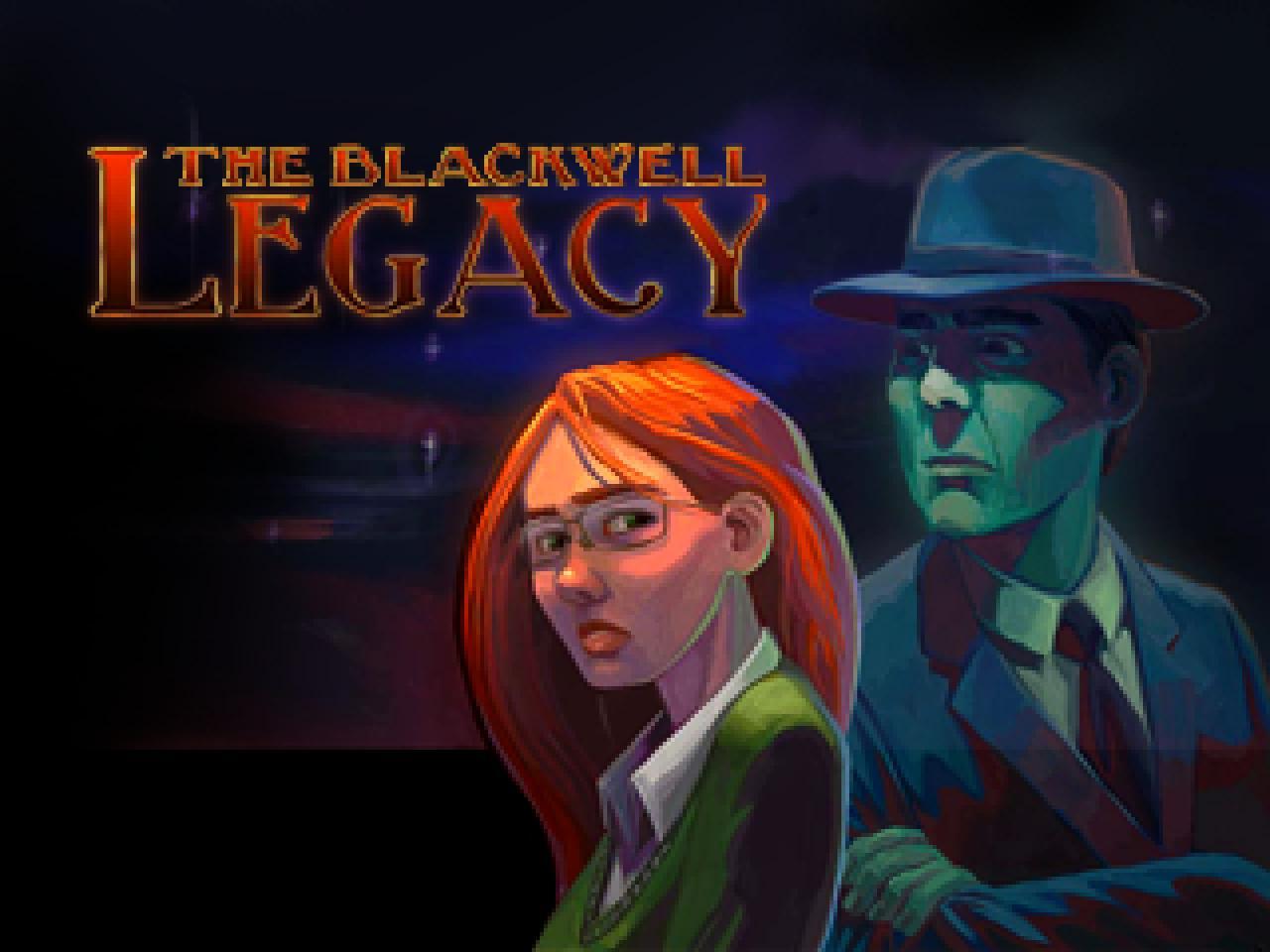 When we were selecting games for our new Indie Impression column, variety was the most important factor. We've had a cartoony roguelike, fast-paced platformer, and a spelunking adventure, all relatively action oriented games in their own right, but it turns out, one of the most popular genres for indie developers is the point and click adventure. Thanks to tools such as Adventure Game Studio, even you can make your own Monkey Island.
When we were selecting games for our new Indie Impression column, variety was the most important factor. We've had a cartoony roguelike, fast-paced platformer, and a spelunking adventure, all relatively action oriented games in their own right, but it turns out, one of the most popular genres for indie developers is the point and click adventure. Thanks to tools such as Adventure Game Studio, even you can make your own Monkey Island.
The Blackwell Legacy is the first title in a series of point and click adventure games developed by Wadjet Eye Games. With the first three games recently included in an Indie Royale bundle, our growing backlog of unplayed games seemed to double in one day. So in an effort to possibly kill three birds with one stone, we decided to check out the first Blackwell game and see if this series is worth playing.
As usual, impressions are presented individually, with a variety of time put into the game. If you have a suggestion on an indie title to highlight, or are a developer yourself, leave a comment or shoot us an email.
The Secret of Monkey Island: Special Edition
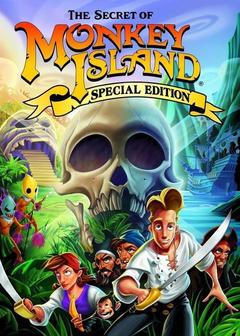 I first played The Secret of Monkey Island about 20 years ago. This was an era of launching games from DOS, Commander Keen, and wheel spinning copy protection. I played the game with my cousin, who would frequently lose the Dial-a-Pirate code wheel forcing us to wildly guess at the game’s opening question.
I first played The Secret of Monkey Island about 20 years ago. This was an era of launching games from DOS, Commander Keen, and wheel spinning copy protection. I played the game with my cousin, who would frequently lose the Dial-a-Pirate code wheel forcing us to wildly guess at the game’s opening question.
The Special Edition released in 2009 thankfully does not have any code wheels (or even worse: always-on internet connection), but does feature completely redone high resolution art, a full voice cast, and the same brand of humor fans of the game know and love.
I’m personally a huge fan of the Monkey Island series, with the second holding a very special place in my heart and the third (gasp!) being my favorite. And while I beat the original when I was younger, I never held a lot of nostalgia for it, so this review is actually coming from a fan of the series who likes the first one the least in the trilogy And no, there is no fourth game.
Paul Eastwood originally reviewed the Special Edition two years ago when it was new, I finally got around to beating it this weekend after having it sit in my Steam library since release. Here is my review of The Secret of Monkey Island: Special Edition.
Indiana Jones and the Last Crusade
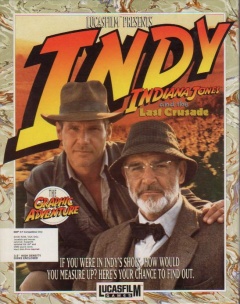 For being a rather popular film series, there sure haven’t been a lot of Indiana Jones video games released. Well, there have, but not in recent memory, the LEGO Indiana Jones game I played a few years ago is pretty much it besides a few unheralded titles here and there. Indiana Jones and the Last Crusade was released in 1989, that’s how far back we’re traveling today for a first hour review.
For being a rather popular film series, there sure haven’t been a lot of Indiana Jones video games released. Well, there have, but not in recent memory, the LEGO Indiana Jones game I played a few years ago is pretty much it besides a few unheralded titles here and there. Indiana Jones and the Last Crusade was released in 1989, that’s how far back we’re traveling today for a first hour review.
Developed by Lucasarts using their SCUMM adventure game engine, Last Crusade seemed like a slam dunk of a title to coincide with the release of the movie, especially as it had Ron Gilbert of pre-Monkey Island fame leading the development team. Indiana Jones wouldn’t be the first movie tie-in game ever, but it would probably be the first to follow the story so closely and carefully.
I’m making my way through my Steam backlog now, and I wanted to play a bunch of early Lucasarts titles since I’m a big Monkey Island fan and I seem to owe it to myself to play their other games. Last Crusade is essentially the oldest one available (Steam does not carry Maniac Mansion or Zac McKracken), so I’m starting here. I’m not sure if I’ll first hour their entire catalog, but here’s the review of the first hour of Indiana Jones and the Last Crusade.
Nelson Tethers: Puzzle Agent
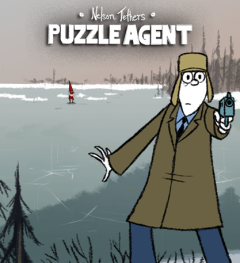 Nintendo has made a killing packaging classic pen-and-paper activities into DS games. Picross, Sudoku, Crosswords...but one of the major successes is the Professor Layton series. Developed by Level 5 and published by Nintendo outside of Japan, the franchise tasks players with solving puzzles and riddles in order to explore a storyline brimming with mystery. The puzzling travels of Professor Layton and his apprentice Luke are a hit with casuals and hardcore alike, selling over ten million units worldwide between the series' five titles.
Nintendo has made a killing packaging classic pen-and-paper activities into DS games. Picross, Sudoku, Crosswords...but one of the major successes is the Professor Layton series. Developed by Level 5 and published by Nintendo outside of Japan, the franchise tasks players with solving puzzles and riddles in order to explore a storyline brimming with mystery. The puzzling travels of Professor Layton and his apprentice Luke are a hit with casuals and hardcore alike, selling over ten million units worldwide between the series' five titles.
Of the three titles available outside Japan, I've only played the first, Curious Village. It's certainly full of cranium-crunching riddles, but I wasn't as taken by the rest of the package as many were. Decent production values aside, there wasn't much that impressed me from the strange story of Layton, Luke, and the peculiar villagers. I'd almost wished the game was a more sterile package, like so many other brainy DS productions. Most would probably disagree, seeing the worth in framing these teasers within a narrative.
Enter Nelson Tethers: Puzzle Agent. I bought this budget PC title in -- what else? -- a Steam bundle during the holiday season. Nelson clearly took notes from one of the Professor's lectures, because Puzzle Agent's premise is very similar to Curious Village, having the player explore a mysterious little town by solving riddles for its puzzle-obsessed populace. But unlike Curious Village, I actually enjoyed the overall experience even more than the puzzles that pervade it.
Ghost Trick: Phantom Detective
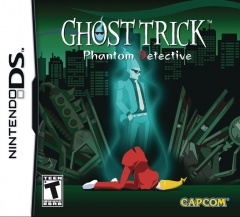 I've been anticipating Ghost Trick: Phantom Detective for a while now. As a big fan (but totally burned out) of the Ace Attorney series, I was excited for Phoenix Wright's creator's next vision. It's an odd one, that's for sure, but holds on to the humor, great cast of characters, and overwhelming charm that made the Ace Attorney series so great.
I've been anticipating Ghost Trick: Phantom Detective for a while now. As a big fan (but totally burned out) of the Ace Attorney series, I was excited for Phoenix Wright's creator's next vision. It's an odd one, that's for sure, but holds on to the humor, great cast of characters, and overwhelming charm that made the Ace Attorney series so great.
In Ghost Trick, you unsurprisingly play as a ghost. The idea is you can manipulate objects from the ghostly dimension to save people's lives and ultimately, find out who you are and why you were killed. The Phoenix Wright-like mystery is present throughout the game and many of the questions aren't answered until the last action is taken, but it's a fun and original ride all the way there.
Phantom Detective shouldn't be a game that can be explained easily, but its first half-hour managed to do a pretty bang-up job. Check that out for an early walkthrough of all the concepts and in-depth gameplay elements the game explains to you quickly and efficiently.
Ghost Trick: Phantom Detective
 I'm a huge fan of the Ace Attorney series, but after the fifth and latest game, Miles Edgeworth, I feel that the series is in dire need for a reboot. We may get that later this year in the bizarre pairing of Professor Layton vs. Ace Attorney, but my wish might have come even earlier with Ghost Trick: Phantom Detective. Created by the original Phoenix Wright lead, Shu Takumi, Ghost Trick seems to be where the creative juices are being funneled into now.
I'm a huge fan of the Ace Attorney series, but after the fifth and latest game, Miles Edgeworth, I feel that the series is in dire need for a reboot. We may get that later this year in the bizarre pairing of Professor Layton vs. Ace Attorney, but my wish might have come even earlier with Ghost Trick: Phantom Detective. Created by the original Phoenix Wright lead, Shu Takumi, Ghost Trick seems to be where the creative juices are being funneled into now.
Released last week outside of Japan on the Nintendo DS, Ghost Trick: Phantom Detective replaces the Ace Attorney game we usually see released around this time of year. Buzz was high for this game, but after watching a few videos, I had no idea what to expect out of this title. The main character is dead, there are timed puzzles to save people from dying, and you can possess objects a la The Haunting: Starring Polterguy or Geist. It all just seemed so... weird.
But I trust the Ace Attorney developers, so I'm going to give Ghost Trick a half-hour of my time to see if it's worth playing. Here are those first 30 minutes with Ghost Trick: Phantom Detective.
Zack & Wiki: Quest for Barbaros' Treasure
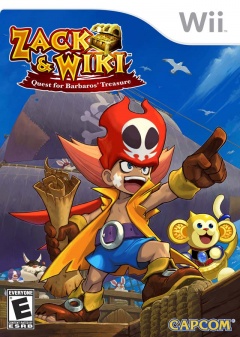 I don't think I've been this disappointed in a video game since Assassin's Creed. Zack and Wiki started off great, but then some realizations start to sink in, and then everything falls off the track. To say I didn't have fun with Zack and Wiki would be a lie, but there are some major problemms with this game.
I don't think I've been this disappointed in a video game since Assassin's Creed. Zack and Wiki started off great, but then some realizations start to sink in, and then everything falls off the track. To say I didn't have fun with Zack and Wiki would be a lie, but there are some major problemms with this game.
Before we get into the review proper, Zack and Wiki: Quest for Barbaros' Treasure was released in 2007 by Capcom. I admitted in my first hour review of the game that this was the first non-Nintendo published title I was actually interested in playing. Super Mario Galaxy 1 and 2 are incredible, but I was having a lot of trouble finding something that interested me on the Wii beyond those. Zack and Wiki had been nagging at me for a while and received great reviews, seemed like it was the right way to go.
I understand that my opinion probably differs quite a bit from the normal reviewer, it makes me question whether they actually played the entire game or if expectations of Wii gameplay has really changed this much over three years? But if I wasn't honest in my review, what's the point in writing?
Trauma Team
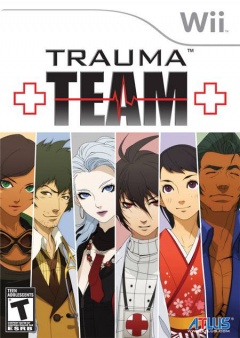 Classifying video games into genres can be a tricky ordeal. For
example, let's look at Fable.
It's a role-playing game because it uses
dynamic statistics as modifiers to its core mechanics, right? But one of
the
traditional indicators of an RPG video game is that it plays out with
little regard to nuanced player input: its action is menu driven and
often
turn based. Fable's real-time combat, on the other hand, relies on
player dexterity (as in an Action game) as much as it does the
quantifications of the battle engine. So, in our propensity to create
subgenres when things don't fit so neatly, we just call it an Action
RPG. However, it's hard to be satisfied with this conclusion when one
could replace every instance of "Fable" in this paragraph with "BioShock," "Mass Effect," or even "Star Ocean" and it would be no less true, even if all of these
games feel completely different in once you get your hands on the
controller.
Classifying video games into genres can be a tricky ordeal. For
example, let's look at Fable.
It's a role-playing game because it uses
dynamic statistics as modifiers to its core mechanics, right? But one of
the
traditional indicators of an RPG video game is that it plays out with
little regard to nuanced player input: its action is menu driven and
often
turn based. Fable's real-time combat, on the other hand, relies on
player dexterity (as in an Action game) as much as it does the
quantifications of the battle engine. So, in our propensity to create
subgenres when things don't fit so neatly, we just call it an Action
RPG. However, it's hard to be satisfied with this conclusion when one
could replace every instance of "Fable" in this paragraph with "BioShock," "Mass Effect," or even "Star Ocean" and it would be no less true, even if all of these
games feel completely different in once you get your hands on the
controller.
Trauma Center: Under the Knife arrived on the scene in the Nintendo DS launch window, requiring players to perform lightspeed surgeries using a variety of medical instruments through the handheld's touch screen. Ignoring the dearth of surgery games (or even touch screen games) to use as precedent, Trauma Center was still very tough to define. Can we really use the catchall Simulation genre for a game where heart surgery lasts all of a minute and Space Invaders can be found in the patient's lungs? Is it part visual novel merely because operations are bookended and pervaded by character portraits and dialogue? Not content to let us try and figure it out after four games, Atlus' fifth title in the franchise, Trauma Team, complicates things further by providing six different scenarios to play through, each with its own exploration within (and sometimes a bit outside) the traditional Trauma Center structure.
Okay, so I don't really know what to call it. A more important concern, though, is whether or not it's fun. So how did my first hour go with this...whatever it is?
999: Nine Hours, Nine Persons, Nine Doors
 999: Nine Hours, Nine Persons, Nine Doors... what an awful title. I'm not even sure if that is the right title, just look at its cover. Anyways, you're probably wondering what the heck 999 is exactly. Well, it's basically Saw meets Hotel Dusk. A point and click visual novel with bombs implanted into stomachs that will explode if puzzles are not solved quickly enough. Yes, this game really was released and has the Nintendo Seal of Approval on it. And yes, it's rated M for Mature.
999: Nine Hours, Nine Persons, Nine Doors... what an awful title. I'm not even sure if that is the right title, just look at its cover. Anyways, you're probably wondering what the heck 999 is exactly. Well, it's basically Saw meets Hotel Dusk. A point and click visual novel with bombs implanted into stomachs that will explode if puzzles are not solved quickly enough. Yes, this game really was released and has the Nintendo Seal of Approval on it. And yes, it's rated M for Mature.
I don't really know why I chose to try 999 out, I haven't exactly had great luck with visual novels *cough* Lux-Pain *gag* Hotel Dusk *puke*, but the whole premise was just too intriguing to pass up. I figured I would give it a half-hour of my time to see if it was worth it to go on.
999 was developed by Chunsoft, creators of very popular visual and sound novels in Japan, including 428: Fūsa Sareta Shibuya de, one of the not-so-elusive 40/40 Famitsu scored games. They also handle the Shiren the Wanderer series and Pokemon Mystery Dungeon, so they're not exactly slackers. As for 999, well, I'm going to give my opinion on its first half-hour right now.
Professor Layton and the Unwound Future
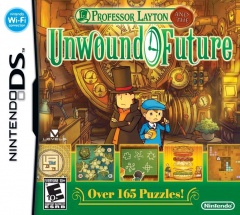 Here
we are back for the third year in a row with another Professor Layton
game. The series has definitely become an annual event that I look
forward to as the games are enjoyable to play and chock full of
challenging puzzles. I’ve compared the Professor Layton series to the
Phoenix Wright series before, as both sets of games offer unusual types
of gameplay on an annual basis. But some other similarities are starting
to creep in, and that’s the feeling of staleness.
Here
we are back for the third year in a row with another Professor Layton
game. The series has definitely become an annual event that I look
forward to as the games are enjoyable to play and chock full of
challenging puzzles. I’ve compared the Professor Layton series to the
Phoenix Wright series before, as both sets of games offer unusual types
of gameplay on an annual basis. But some other similarities are starting
to creep in, and that’s the feeling of staleness.
The series hasn’t evolved a lot in three games, this isn’t necessarily a bad thing as the puzzles are great and the stories always intriguing, but it’s starting to feel like I’m playing expansion packs instead of brand new games. I awarded the first game, Curious Village, a 9/10 and its sequel, Diabolical Box, an 8/10, and I’m about to hand out a 7/10 to Unwound Future. I put a lot of value in mixing things up and trying something new, and the Professor Layton series just isn’t going anywhere. This isn’t to say I didn’t enjoy my 20 hours with Unwound Future, but I’d really love for something more.
If this is your first Professor Layton game, you can expect a point and click style story-driven game with tons of unrelated puzzles to keep you interested. There isn’t any prior knowledge required to play Unwound Future, so it’s definitely a series someone can jump into at any point. Here’s my full review of Professor Layton and the Unwound Future. If you’re curious, I also have a half-hour handheld review up too.
